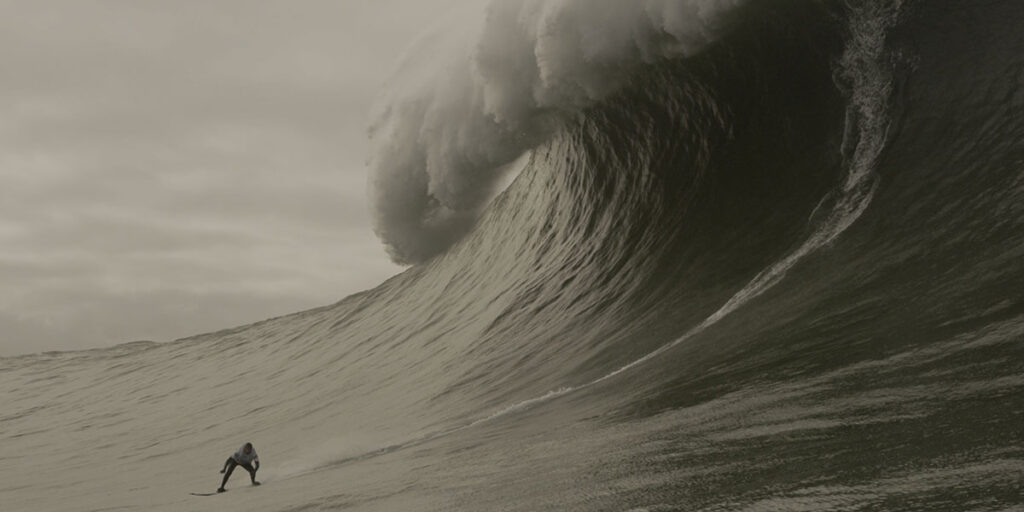Stephanie Johnes is a director, producer, and documentary filmmaker who gravitates toward stories of underdogs and dreamers. Her directorial debut, “Doubletime,” premiered at SXSW and Tribeca and was acquired by Discovery Films. She served as the Director of Photography for “Venus & Serena,” the Magnolia Pictures and Showtime film about the iconic Williams sisters.
“Maya and the Wave” is screening at the 2022 Toronto International Film Festival, which is running from September 8-18.
W&H: Describe the film for us in your own words.
SJ: After a brush with death, Maya Gabeira makes history in the male-dominated world of big wave surfing. The film is an empathetic portrait of a woman fighting to achieve her dream while struggling against gender bias.
W&H: What drew you to this story?
SJ: I was curious about big wave surfing, and what it must be like to be one of the few women in the sport.
I think I was drawn to Maya because I can relate to her struggles, and I hope that viewers will see themselves in her story as well.
W&H: What do you want people to think about after they watch the film?
SJ: People usually think about their own struggles with prejudice and feel validated after watching this film. I hope they will also feel empowered to stand up for themselves.
W&H: What was the biggest challenge in making the film?
SJ: The biggest challenge was the timeline. When I met Maya I didn’t know how long it would take for her story to unfold. Turns out it was 10 years.
W&H: How did you get your film funded? Share some insights into how you got the film made.
SJ: The film was initially self-funded. After the story had proven itself, financiers came on board.
W&H: What inspired you to become a filmmaker?
SJ: I couldn’t decide on a career, so rather than choose, I pursued journalism so that I’d have an excuse to learn about anything and everything.
W&H: What’s the best advice you’ve received?
SJ: The best advice I’ve received is to be yourself. As a filmmaker, you are often a fish out of the water, in strange environments, and it always helps to just be your authentic self, even if you don’t fit in.
W&H: What advice do you have for other women directors?
SJ: If you love what you do, hang in there! And try to work with women as much as possible when you can.
W&H: Name your favorite woman-directed film and why.
SJ: “The Crash Reel,” directed by Lucy Walker, is my favorite documentary of all time. I love it because it is both intimate and spectacular. It was an important reference for Maya’s film. I aspired to make a film like “The Crash Reel,” an empathetic portrait of an athlete, with the context of a family story and the visual magnificence of extreme sport.
W&H: What, if any, responsibilities do you think storytellers have to confront the tumult in the world, from the pandemic to the loss of abortion rights and systemic violence?
SJ: I don’t think storytellers have responsibilities; we follow our hearts or do the jobs given to us. I think funders and distributors have a responsibility to fund and distribute meaningful stories rather than pandering to the lowest common denominator.
W&H: The film industry has a long history of underrepresenting people of color onscreen and behind the scenes and reinforcing — and creating — negative stereotypes. What actions do you think need to be taken to make Hollywood and/or the doc world more inclusive?
SJ: I think we need more female executives in positions of power. Female-driven content has proven itself both commercially and artistically. Fifty percent of the world is female, but the majority of people in power are men. With more female decision-makers, we would have better representation of women and people of color onscreen.







